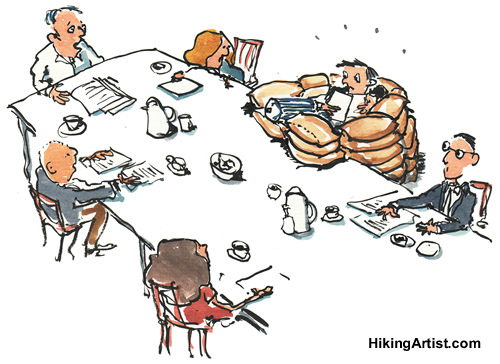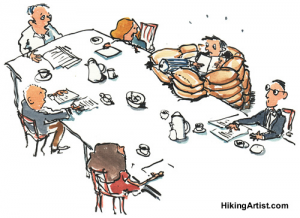
The Publishing War Frontlines (continued)
 The Publishing War Frontlines (continued from here)
The Publishing War Frontlines (continued from here)
3. Online vs. physical presence
Amazon is the still uncontested leader in book distribution online whereas Barnes & Nobles leads the distribution through retail stores. That is today. However, early February, rumors about Amazon’s intentions to open showrooms in Seattle in the coming months, began to spread in the publishing world. This would definitely threaten B&N’s market share of the physical book retailing market, a market that is not in good shape.
Since 2002, the US has lost over 500 independent bookstores, partly due to the competition of giants such as B&N, and a further 650 stores were lost when Borders closed down last winter.
So, the entry of Amazon into the retail market implies that, instead of gaining market shares at the expenses of small independent bookstores, B&N would fight an immeasurably stronger opponent, with deep pockets and colossal means. This might be one of the reasons explaining why B&N launched its boycott attack against Amazon.
Though Amazon reportedly intends to take the boutique shop road to push high-end high profit items and to only keep a limited number of physical books in his showroom, it is known to adapt quickly to changing circumstances and could very well change that policy if it deems it profitable. So it is a real potential threat to Barnes & Nobles.
- eReaders hardware
Asides from generic tablets, the main eReaders are Kindles and Nooks, Amazon and B&N respective proprietary eReaders. The first Kindle was launched in November 2007, whereas Nook began its commercial life in November 2009, a full two years after its competitor and had a lot of ground to catch up.
The firsts Kindles and Nook offered limited Internet connectivity, and were only in Black and white.
Then, B&N took the technological lead in November 2010 by releasing a color LCD device called the Nook Color and furthered its lead in June 2011 by releasing the Nook Simple Touch, which featured a touch screen.
Last November, Amazon launched the Kindle Fire, a color touch screen eReader to rival the Nook Simple Touch. Amazon decided to launch its new gadget by selling it at little less than production cost, hoping to recoup its initial loss of profit to increase in sales of books, audio recordings and movies.
On this frontline, Amazon and B&N are fighting each other and no other publisher is involved in that technological fight.
- Piracy and Intellectual property
Though the controversy surrounding SOPA that caused ink to flow during January is not specific to the publishing industry, and at this stage is mainly relevant for the music and movie industries, the growing share of digital books vs. print books in the book market means that the fight to protect intellectual property of authors against illegal downloading is going to become increasingly relevant with time.
Of these 5 front-lines, the battles for exclusivity and the war against piracy are of cardinal importance to all authors, as their very subsistence will be defined by the outcome of these battles. The policies of book lending will ultimately be dictated by publishers, whose financial interest is directly parallel to the author’s interest.
The respective shares of publishing giants on the retail market or of their proprietary eReaders is of course an important battle, but its direct repercussions on authors are far less critical.
So writers should really keep a close eyes on the exclusivity and piracy front-line, consider the options and participate actively in the conflict to protect their livelihood.